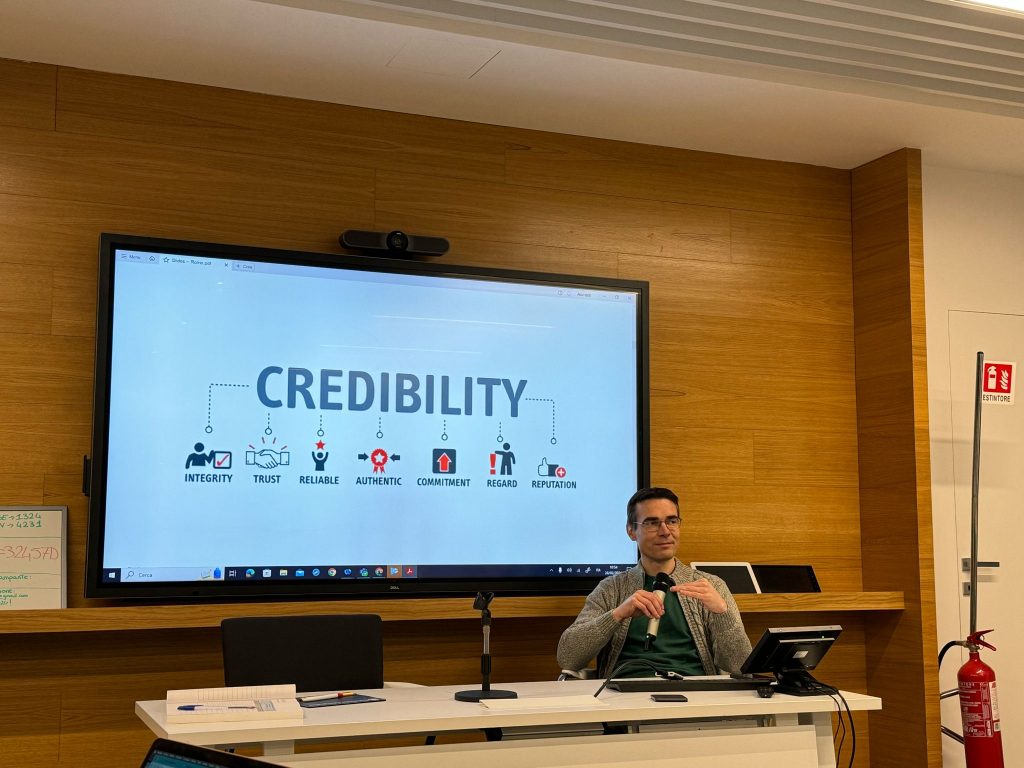Ben Scott was not even thirty when he was called to work for Barack Obama’s presidential campaign. As a great expert in communication strategies, he was one of the first to understand the importance of the internet and digital information for political purposes. “The use of the web really made the difference in Obama’s victory in 2008”, he says during his seminar at Luiss School of Journalism on Wednesday, February 28.
Hillary Clinton, the second candidate in the US Democratic Party primaries in 2008, must have sensed it too. That’s why she decided two years later, as Obama’s Secretary of State, to rely on Scott as an expert in telecommunications for foreign policy. He did not consider himself up to the task and was ready to decline the offer, but Clinton convinced him with a sentence he will remember forever: “Do you see this building? Everyone here knows about politics, but no one understands a thing about technology.” Thus, the expert becomes a reference for the State Department in the years of Wikileaks, the Arab Spring, and the advent of social networks.
Passionate about hi-tech, but not a tech fanatic, Scott’s seminar focuses on the biggest threats to democracy. According to the expert, social media -as they are designed today- represent an obstacle to quality information: “Once, in a bookstore, it was enough to look at the cover to understand the authority of a newspaper: the smaller the font, the more authoritative the headline. The same was for television content: the voice of the host, the choice of words, and the graphic elements communicated the reliability of the shows.”
With social media, it’s a whole different story: “Everything seems the same: platforms are designed with a layout that creates an immediate sense of credibility. When we scroll through the feed, we trust what we read without verifying the sources.“

Scott denounces the extreme fragmentation of reality in the digital age. “Each of us has a different perception of the world, based on what we are shown on our screens. This is determined by a personalized algorithm, which ‘surveils’ us and knows everything about us: where we live, what job we do, who our friends are, and which gym we go to. But, above all, what we love and what we would like to buy.” Facebook and other social networks manage to keep us glued to the screen for hours. “They earn by selling our time and attention to advertisers: we are the real product.“
It’s no coincidence that the business model of five of the world’s highest-revenue companies is based on the trade of personal data and the “surveillance” of our preferences and interests. The annual revenues of Microsoft, Apple, Alphabet (Google), Amazon, Meta are worth more than the GDP of entire countries, such as Ecuador or Croatia.
None of these big companies cares about the reliability of the information published on the platforms. There is no longer a single reality, a single truth: Scott describes it as “epistemic chaos”, recalling a definition from Shoshana Zuboff’s book “Surveillance capitalism”. Users find themselves enclosed within a filter bubble: the content they are exposed to validates their prejudices and personal beliefs. “Everyone wants to hear: ‘you’re right, you’re on the side of justice.’ Reinforcement mechanisms end up normalizing radical positions. It’s a threat to social order.“
Scott cites the assault to US Capitol Hill by supporters of former President Donald Trump, which took place on January 6, 2021. “The demonstrators really believed in the slogans they shouted.” To the point of losing their lives or ending up in jail. That day nine people died and 1300 were arrested. “Most of them were middle-aged citizens with a medium-high income: radicalization claims victims even among people with a good level of education.”
And it is not a phenomenon limited to the United States: the spread of fake news has been fueling protests around the world for years. “During the Covid vaccination campaign, hundreds of trucks in Canada blocked the roads for months in front of government buildings. Similar demonstrations have taken place in Europe.”
Disinformation threatens democracies, and hi-tech companies do little or nothing to counter it. “New laws and rules are needed: social media must be redefined.” The other necessary step, according to Ben Scott, is a radical change in mentality and approach to the information industry: “These are difficult times, but I consider myself optimistic. A different future is possible: we have to build it together.“

